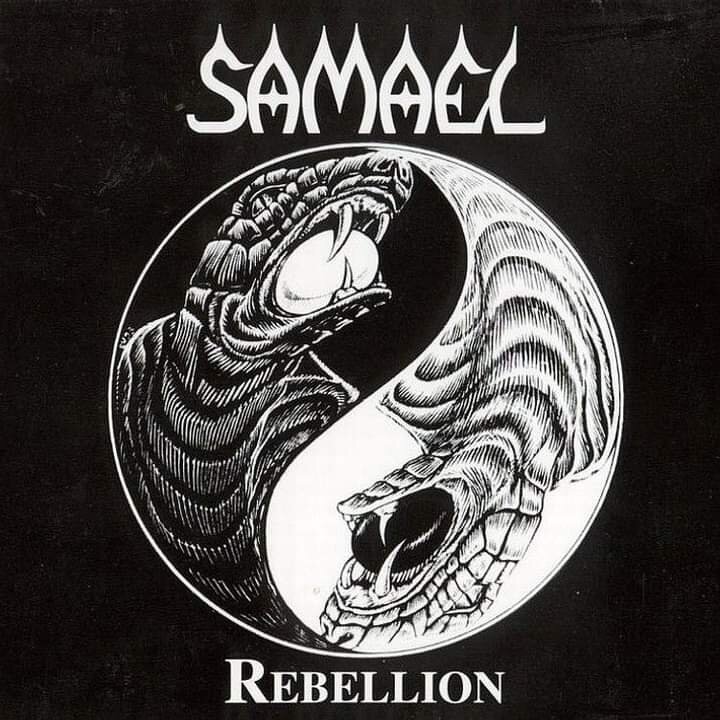-
Posts
219 -
Joined
-
Last visited
-
Days Won
27
Content Type
Profiles
Forums
Events
Gallery
Everything posted by Diavolo
-
Have you ever considered whether what you long for is a product of a desire of your own or you want what you want because someone else has told you that you want it?
-
We know what we do. What we do not know is the reason. Myriads of imperceptible, primitive impulses dictate our becoming. The idea of a Self seems to emerge as a residue of a series of events made conscious as soon as they have already occurred. How would it be possible to have a Self that can worry about filling the cupboard without having first experienced hunger? Could we say that the desires that beset us are nothing more than past events, which we seek to recreate in the most immediate possible future? Everything would depend on the urgency we have to relive the past in that fleeting moment that we call the present. And while we mention it, it is already melting into our gallery of memories, powdering itself along with thousands of other accumulated memories. I wonder if we are something more than our wishes; than the desire to repeat the preterite over and over again, but with slight variations so as not to fall into monotony. Will we be something more than appetite, than sleep, and the urge to mix our DNA with that of another person? Could it be that the above engenders everything we are capable of wanting? Are these three matrices the only possible ones within our field of action? And if so, why have we decided to congregate in this virtual space? What thing from the past do we seek to revive in this corner made up of ones and zeros, then turned into a forum full of people of about the same age, with their no less important exceptions? It is obvious that I have uncertain answers, but I would like to know what you have to say.
-
Wizard always. My favorite school is evocation. Love to be the Glass Cannon and the use of the spell "Familiar". And you? What do you play?
- 36 replies
-
- 1
-

-
- dnd
- dungeonsanddragons
-
(and 1 more)
Tagged with:
-
This song used to be played on my VF profile
-
I did. Side effects kinda suck.
- 36 replies
-
- 3
-

-

-
- covid
- coronavirus
-
(and 1 more)
Tagged with:
-
Allow me to share with you a song that I finished 2 months ago. This is the kind of Dark Trance that I always wanted to hear, but never found. I'm still new to the topic, I hope some of you enjoy it. Iml
-
In the past, I was very soft with family and with so-called "friends" who looked down on me. I ignored their mistreatment for fear of losing social advantages, for the terror of being alone, and, most stupidly, that they would think the worst of me. In particular, I will tell very little about what I lived with my father, the cruelest person I know. As I grew up, I questioned his parenting methods and the worldview he wanted to impose on me. Especially his physical assaults; his violence against me and my family. For years, I tried to dialogue with him, however, I learned that, unfortunately, there are people for whom reason is not enough. I was able to get him to leave us alone by returning the violence that for years he deposited on me. He hasn't bothered us again. From then on, I was regaining confidence in myself and I was getting rid of dozens of toxic links. I do not have the support of my father or any of my relatives. My life is not easy, I accept it, but the peace I experience is worth it. My case is an extreme one, I do not advocate in favor of violence. Maybe yes in favor of healthy insolation. Not all people want to reach a peaceful consensus. And that one must learn to recognize. Distance and the acceptation that some people never learns keeps away unnecessary problems.
-
"It seems natural to humans to give things a name so we can relate to them" What is natural? Here I only see the normalization of an unquestioned order. If there is something characteristic in the way that nature operates, it is that it always changes form: constant change or the non-static. The unnatural, passed for naturalized, is the institutionalization of a perspective frozen in time; Believing that what corresponds to the material world will always work the same. Regarding the use of the Word, naming a person or a relatable object does not mean making it knowable I'll give you an example: giving you my name makes me more relatable to your person because it helps you to identify me in your world, but the fact that you have access to my name, and articulation of arbitrary letters, does not give you access to my intimacy. In the same way, the word does not have access to the intimacy of any object identified by any name. The word is powerful within its lexical domain, but not in the phenomenal one. If we didn't have a word for the rain, it would still rain. Believers are therefore only based on the bible, which means Book because it is based on letters, which pose as facts within their literary universe. Now, the absence of meaning as something intolerable, why is it an oxymoron? An oxymoron is a sentence that within its content contradicts itself. I think you are confused because to speak of an oxymoron is, for example, when it is said that nothing is nothing; there it is being said that nothing IS, therefore it can't exist not. Nothingness cannot be explained by the word. At the beginning of this topic, I mentioned that when someone frees himself from a condition, the subject is not floating but is immediately abducted by another condition, although that condition may be the absence of the previous one. That is not an oxymoron, I stress. About the lack of solidity, I refer to the inability to determine an objective for existence, a "for what" (destruction of a previous moral). I am not talking about the intangible of matter. Regarding the issue of the final judgment, why can't this be a Ragnarok or action of Shiva? What if Christians are wrong? I mean, Christianity is one more religion among hundreds. Believing in a final judgment is like betting on a horse race or that a rugby team will win. If the bettor errs in his prediction, he loses his money (or time). If it is a jackpot, he will be rewarded. In the long run, betting on a final judgment is still believing in the bribery of heaven, in this case, the bribery of non-punishment. Here I see nothing but fear of contradicting a tyrannical power for fear of suffering; to his conditioned goodness. The problem is not God, but the metaphor within which the Christian god flourishes: that it is the Only truth. This is the violence of monotheism: denying other Truths. This fundamentalist principle has disabled or stagnant the talk of political issues for wanting to continue to focus on metaphysical questions, which solve nothing. About freedom, I doubt it's manipulating space and time. Under the duress of the inquisition, Galileo was forced to say that the Earth does not revolve around the Sun. The church can manipulate interpretations of the physical world at its convenience. Similarly, capitalism has denied global warming to continue operating. Scientists can be coerced to modify a material structure and are not free from this. Freedom, I think, continues to be the ability to see the cosmos beyond the ideological heritages that have inoculated us or adopt the former not out of fear of retaliation, but because the advantage that this brings is consciously accepted. This talk is not about believing or not in god. I can agree with Spinoza's version of God. This talk is about what Freedom is. Based on the video, since many of your arguments are based on science, why not consider the Hard Problem of consciousness? Neurology does not know if it comes from a physical process (synapse) or if it originates from an immaterial world; Unfit for this universe. Assuming a God unrelated to the laws of this universe is only possible through faith; of an unverifiable metaphysics, but at the same time born of a brain: an organ of which the pastor himself doubts. That is an oxymoron. Also because religion hides behind the bible; within a lexical domain, which was the product of various brains. Not to mention emotions, for that neuroscience also has an answer. Is it the freedom to use faith and then science when it is suitable?
-
I forgot to mention that freedom may be the way we interpret the world and how we react towards it, since even the words that we use don't belong to us, we belong to them. Words condition the structure of our thoughts and beliefs. Words we're before we are born and will prevail after our demise. We were not free to choose to be born, we did not choose our family, not our economic system, and not our language. We only can develop interpretations What do you truly created by yourself; from the void? All was given.
-
Can you believe that I barely read your answer? Sorry for the delay. When you say: "heat will burn and there's no denying this fact", you are speaking of truth by correspondence, proposed by Aristotle and that has been retouched by the Utilitarians, which has to do with saying that what it Is is what it is and that what is not is what is not. The non-existence of Truth, with a capital letter, to which Nietzsche refers is metaphysical. For this, he makes a whole critique of morals and religion in his book called "Aurora". One possible argument put forward is to advocate the lack of goodness of God, who prefers to remain hidden rather than show himself so that we stop killing ourselves in the name of the Truth. Another possible argument is that we fall into the error of believing we know the nature of what surrounds us simply by having given each element a name; of having converted objects into words, and that by knowing the word we fall into the error of believing that we know the object itself, but we may go to the opposite direction instead. As for the universal order, for the believers of the Christian god, it must be of an ethical nature because the absence of meaning is unbearable for them, the structure on which they govern their life loses solidity. There are more those who act guided by the bribery of heaven than by conviction. Believing that the universe needs to have a cause is just that: believing. Faith or belief in itself is not evidence of a factual order. The belief in an ethic of the universe can appeal to further ethnocentric interpretations, since nihilists have the same need to believe that there is no order in the universe and, therefore, there are clashes of egos
-
"The old gods died laughing when they heard one of them say that he was the only one" -F. Nietzsche To speak of God is to speak of the truth. But of what truth and of what god? From that of the Aztec god of war, Huitzilopochtli? Or that of the Norse sun god, Baldr? Nobody thinks of them when the word "god" or the word "truth" arises. So, is it not an act of naivety not to assume that, in the West, the word god has almost been monopolized by the Christian god? Could it be that the truth, which is nothing more than the installation of the most efficient lie, has been monopolized in the same way? In one of Plato's texts, you can read the discussion that Socrates has with the soothsayer Euthyphro. Both try to define what are holiness and justice. Euthyphro does not take long to point out that the holy is that which pleases the gods. "It is not true that it is impossible to please all the gods, because what delights one arouses animosity to the other one?" Socrates asks his interlocutor. Greek polytheism appears as a repertoire of different divine visions, which coexist at the same time. It was a range of different morals; of simultaneous contingent truths, which did not need to please one another. The literary Trojan War was started by a ridiculous competition between the goddesses Hera, Aphrodite, and Pallas Athena, which Ares's mistress eventually won. Similarly, Apollo and Dionysus shared believers: by day, the Greek polis worshiped the solar god related to the bureaucracy of life, and, at nightfall, the orgiastic god of wine was worshiped. The guilt, which the difference usually engenders, seems to be one of the non-existent or rare problems under the Greek polytheistic system: if someone did not worship a popular god, consequently he worshiped another, not necessarily evil, for being less crowded, as in the case of Penia, the goddess of poverty. Socrates was sentenced to death for failing to worship any of these, which complicates the matter. Before continuing, I would like to make it clear that the noun god can also be a synonym for morality; of tradition. It is not intended to speak in favor of the existence of the Olympians or to resume a cult towards them. The gods are archetypes of diverse customs. On the other hand, Christian monotheism established and normalized only 1 interpretation of reality: it institutes 1 couple to love, 1 nation to serve, 1 moral, 1 single cause, 1 single effect, 1 Whole, which is not composed of individualized entities that are interconnected, but by a social body that must lean towards moral homogeneity, which will be called reality and which comes from the law; from the only creative source. Monotheistic reductionism ignores the complexity of micro and macrocosmic processes to give rise to a univocal reading, which discards reason to enthrone faith as the only translator device of the universe, as if the force of a current of air could be calculated or the weight of an apple with some variation of the metric system. Maybe monotheism is the Big Brother of 1984 and its thought police are scattered within its bureaucratic behavior. Violence, such as that exerted by Emperor Constantine or by the Holy Inquisition, emerges when 1 worldview does not allow others to flourish and establish alternative versions of reality for political reasons: of power. Could it be that those who decide to adopt a monotheistic system to interpret its socio-historical context endorse a single belief more because they fear reprisals, suffered by those who contradict the idea of the ruling dogma than because of a conviction nested in the depths of their people? It is well known that until Christianity copied the idea of hell from other religions, its cells of believers multiplied more efficiently. Well... This is just another idea on the table.
-
If a crisis is a way to have fun, is it still a crisis?
-
There was little time to ask questions. The shocking circumstances had to be provoked
-
There was little time to ask questions. Shocking circumstances should be provoked to think
-
Hey, man, that's appreciated! I hope more people get interested as well. Remember: on Sundays we do not operate, unless someone suffers an existential crisis (Just kidding).
-
14-18 grams of local full-city or Italian roasted coffee. 2 oz of water. Espresso machine type grind with gear grinder, not blades. I got myself one of those Flairspresso machines and ... Dude, it works magnific. 5 freaking stars. Then, I pour 5 oz of hot water on the espresso and make it an American coffee. A delight. Have you heard of bulletproof coffee? Sometimes I also make my coffee like this.
-

Do you believe humans as a whole will ever overcome being violent?
Diavolo replied to Vaderofdarkness997's topic in Off Topic
Thank you, sir, for introducing in the forum such an interesting topic. The appreciation and respect are mutual. -

Do you believe humans as a whole will ever overcome being violent?
Diavolo replied to Vaderofdarkness997's topic in Off Topic
I still have doubts. That a baby cry from hunger corresponds to an act, an emotion, and a unique human thought? Puppies are human when they do the same? Maybe it's just an anthropocentric vision; of human exceptionality. There is no natural order, but a way of perceiving this order in the environment through the conveniences of a force that exerts power. There is violence where 1 mentality does not allow others to arise. This is called repression. Morality, in short, reveals to us how close we are to animals; it exists to distinguish predators, to distinguish hierarchies or lack thereof, and to provide us with food through the founding of cooperative groups in case of serving the ruling morality; to prove to be part of the collective. That is why we are kind to those who are kind to us and that is why we want to fight against those who threaten our order. We are not different from animals, if anything we are more sophisticated to love and to exercise cruelty. You say you believe. Believing is not knowing. Your belief is based on something that you have faith in first and then see that belief reflected in the world. From that logic, violence would cease to exist if you stopped believing in it. But not believing in something does not dispel what would happen anyway. You can't change someone's behavior without first changing his beliefs; his\herprejudices about reality. Don't you think that those who know that they cannot change their material conditions through work prefer to exercise violence because it is the only alternative they envision to achieve it? Or speaking of those who hold power, don't you think it is convenient for them to keep social structures in terrible conditions so that a force cannot be organized that opposes them? Violence is organized. But... Hey, no topic is explained as saying: 2 + 2 = 4. This can be considered populism. All this are just mere ideas, that I'm willing to put into test.




